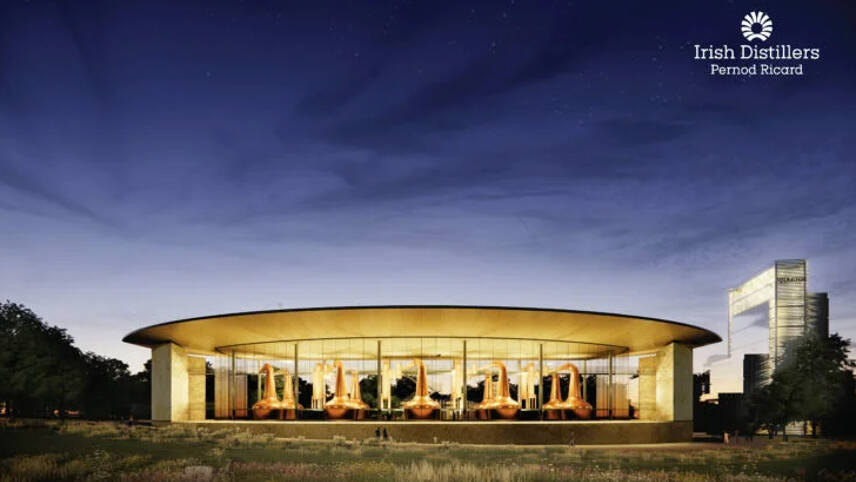Register for free and continue reading
Join our growing army of changemakers and get unlimited access to our premium content

Image: Irish Distillers
The plan is to create a new distillery adjacent to, and connected to, its existing distillery at Midleton. A 55-acre site will be used for the new distillery.
Arup and Harry Walsh Associates have worked with Irish Distillers to draw up the initial plans for the distillery and the consortium will now need to file a planning application and meet necessary licencing requirements. It intends to do this by the end of the year. If this process runs to plan, the facility should be operational in 2025.
The new brewery will be carbon-neutral in operations. Irish Distillers had already set aside €50m to convert the existing Midleton Distillery to be carbon-neutral in its operations by 2026.
A combination of measures to reduce energy use, decarbonise energy and restore nature will be used to address emissions from the original Midleton distillery – with these learnings set to be applied at the new facility. The aim is to end all fossil fuel power at Midleton within four years, improving on-site energy generation, recycling waste heat and electrifying processes. In time, the ambition is to procure green hydrogen and self-generate biomethane to displace fossil fuels.
There are also plans in the works to create and restore nature at the site, improving its ability to sequester carbon naturally.
Enterprise Ireland, the Government agency responsible for supporting manufacturers, is supporting Irish Distillers in the development and delivery of its plans to reduce emissions at Midleton and across its value chain. It has stated that the learnings “will provide a blueprint for the industry”.
“Whiskey has been distilled in Midleton for almost 200 years and as such it has always been our desire to secure the future of distilling in East Cork,” said Irish Distillers’ operations director Tommy Keane.
Globally, Pernod Ricard has stated an ambition to halve its carbon intensity by 2050 and to work towards net-zero by 2050. These proposals are currently with the Science-Based Targets Initiative (SBTi) for approval under its net-zero standard. The standard requires companies to reduce emissions by at least 90% by 2050 at the latest, thus preventing them from over-relying on offsetting.
At present, the firm’s goals are SBTi-approved in line with the ‘well-below 2C’ trajectory.


“End all fossil fuel power” seems a little improbable to me.
From where is the power to come?
Unless all the electricity is renewable or nuclear, is it not bound to have a fossil element?
Richard Phillips
Hi Richard, we understand that they will be using a fully renewable/nuclear electricity tariff.